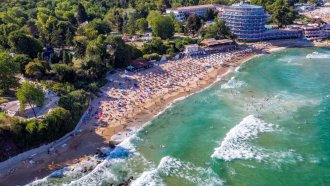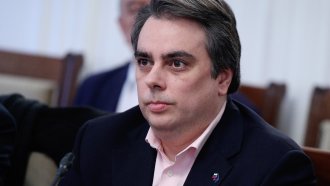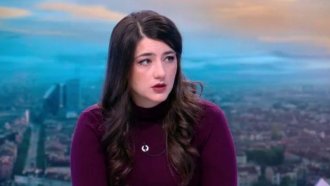Opinion:
President Roumen Radev’s veto of Ivan Geshev election for Prosecutor General: The right move but is it enough?
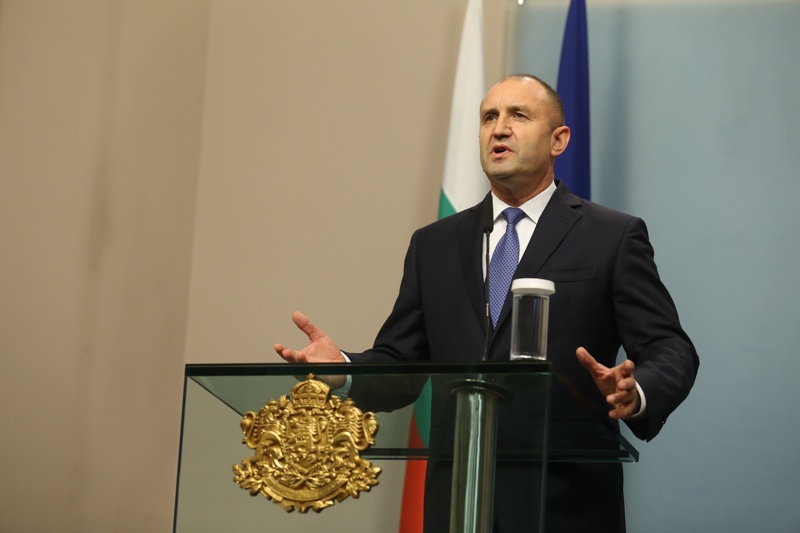
President Roumen Radev refused to ratify the results from the election of the only candidate for Prosecutor General, Ivan Geshev.
Geshev’s nomination was announced back in July. As a protégé of the current Prosecutor General and being in charge of the Prosecutor’s Office most important cases, Geshev was expected to be nominated for the post, although he himself rejected the possibility categorically about a year ago. At the end, he not only received (and accepted without hesitation) the nomination, he had no competition for the whole process.
The position of Prosecutor General is arguably the most powerful in the country, not least because the position bares key characteristics of its predecessor from the totalitarian state. The Prosecutor General is unaccountable and untouchable. The governments’ consistent refusal to reform it over the years has ultimately realized its power potential. The executive branch is almost entirely dependent on it, the legislative as well. The practical implication leading to this composition of powers is that the Prosecutor’s Office and the Prosecutor General in particular have the unlimited right to open and close criminal investigations without having to justify the decisions to anyone – a prerogative blown out of proportion from its overuse and abuse.
The nomination and election procedure of a Prosecutor General is very distant from any public pressure. The members of the highest administrative body in the justice system, the Supreme Judicial Council, vote to elect a Prosecutor General. Half of the members are prosecutors (direct subordinates of the Prosecutor General), half are judges. Half of everybody are elected by Parliament. Which leaves about a fourth of the members having any chance of real distance from the majority in Parliament of the Prosecutor’s Office. Ivan Geshev was elected with 20 to 4 votes. All 20 were the prosecutors’ plus the judges appointed by Parliament as opposed to the judges’ committee.
Thousands have been protesting Geshev’s nomination since the announcement. On the day of his election the area around the Supreme Justice Council was overflown with police, special forces and military police. Hundreds of people “in favor” of his nomination, most of them young black-hooded men, some teenagers, were let near the building through a special police-guarded checkpoint. Some journalists managed to get in and take interviews. Not a single one was able to provide an answer as to why they are there and demonstrated a definite lack of any understanding of the process.
Geshev’s vote was on October 24. The nation-wide local elections were scheduled for October 27 and November 3. While Geshev was an important issue still, it was obvious that the subject will see a two week pause. Regulation-wise, after the Supreme Judicial Council votes, the president must sign off on the procedure in order to finalize the appointment. The president has the right to return the vote only once. If the council repeats the vote – which Prosecutor General Sotir Tsatsarov has assured multiple times it will – the president will have no choice but to ratify it.
There is no timeframe in which he must veto or approve the result. In theory he could drag the process indefinitely. While it is curious to think about what would have happened if Roumen Radev had decided to hold up the whole process until after Tsatsarov’s tenure ends whereby may be lifting some of Tsatsarov’s hold over the prosecutors in the council, he didn’t. Radev announced he will be returning the vote the week after the second round of the local elections was over.
What makes this case particularly interesting is – again – the single-candidate race. It is delegitimizing enough to have a single candidate in a race the first time round. But for the procedure to be vetoed and be restarted only to have the same single candidate restart the unopposed borders a catch-22 kind of glitch.
Which leads us to what the president did not do and avoids answering questions as to his intents in the near future. Radev may send the case to the Constitutional Court to rule on the legitimacy of restarting a vetoed procedure with one candidate. Moreover, in his announcement, the president stressed precisely the fact that Geshev was the only candidate in the race, which “takes away from the authority and legitimacy of the future Prosecutor General – [both] vital in fulfilling his important and difficult role.” But the president has not asked the Constitutional Court to date and evaded reporters’ questions if he intends to do before the next decision reaches his desk.
Meanwhile, the day after the president’s announcement Sotir Tsatsarov told reporters – again – that the prosecutors will vote for Geshev again. And answered one question by a reporter of whether a second candidacy is possible with a definite no.
Geshev got 20 votes in the last election but he only needs 17 to win. Those (and more) seem to be in the bag. In part of his statement the president said he wants to see a true election and race between candidates instead of a mere pro forma procedure to satisfy a requirement. If the president truly feels this way though, returning an unopposed candidate to undergo the identical one-candidacy vote does not reflect it. In fact, if he does not take the case to the Constitutional Court, he will have done nothing different than what the Supreme Justice Council have done.
If the president does not include the Constitutional Court in this procedure, one of two things may be happening: the president is fully the return of the vote will make no difference whatsoever but he has decided to use the opportunity for easy PR. Or he actually expects the Supreme Judicial Council will do something different. The latter is plain disturbing, the former is cheap but in both cases the president is hardly an opposition force. Without the Constitutional Court the president’s gesture is an empty one, having no real significance apart from the most naïve targets of his PR team.
Without a doubt, the president did the right thing. But it is only one step in a process involving at least one more if it is meant to produce a real result.
In other news:
GERB did not nominate a candidate for Prosecutor General “not to raise questions”
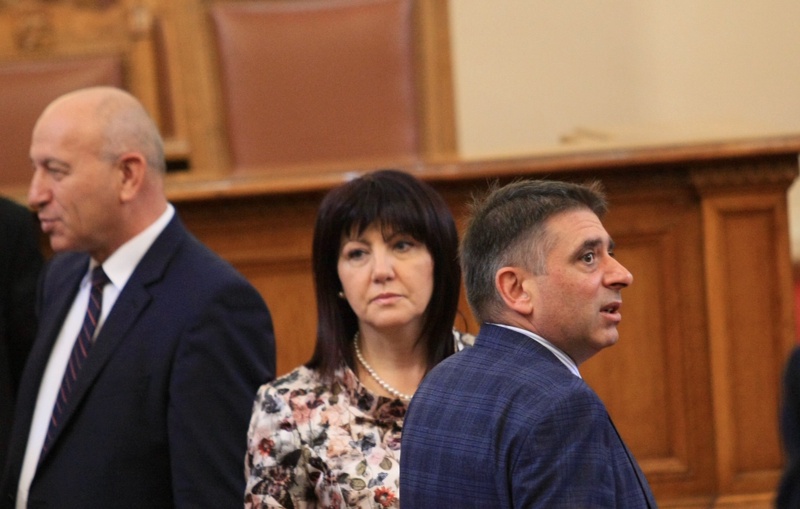
GERB MP Krassimir Cipov commented on President Roumen Radev’s veto on the election of the unopposed candidate for Prosecutor General, Ivan Geshev. Since the president’s main argument against Geshev refers to him being the only candidate, Cipov explained why the government failed to exercise its right to produce a nomination. He said that both the minister of justice (who formally may nominate a candidate for the post of Prosecutor General) and the PM had decided not to do so because “a lot of questions would arise.”
“This is only an option, not an obligation for the government”, he added.
Opposition leader Kornelia Ninova pointed out that her party’s position is that a race of one is not a real race, and reminded that BSP declared this to Parliament as early as July.
“The only person who could ensure [a real race] was PM Boyko Borissov,” she said.
BSP had hoped, in her words, for the PM to be reasonable and nominate a second candidate.
“Alas, his heavy dependencies did not allow him the courage [propose a candidate], for us he is a colluder in the plot to produce a single-candidate race” Ninova said.
Democratic Bulgaria breaks GERB’s monopoly in Sofia
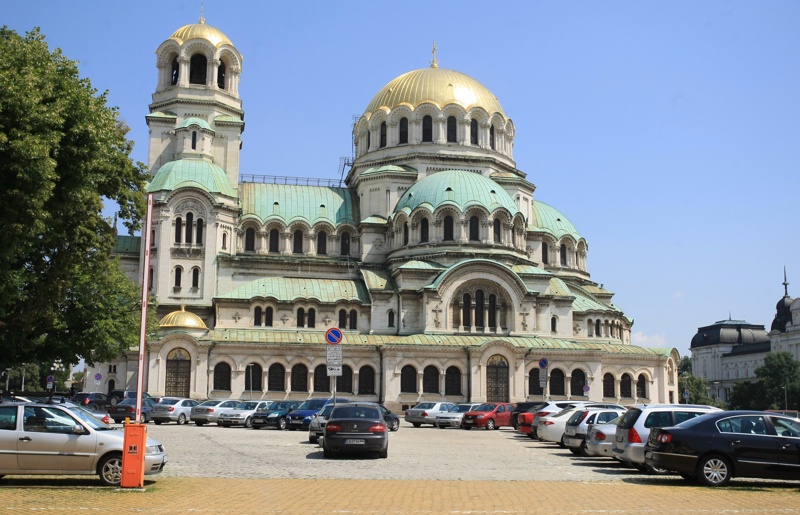
The non-parliamentary government opposition, Democratic Bulgaria managed to win eight district mayoral seats in Sofia on this election. Another five will go to independent or other opposition candidates. GERB or GERB-supported candidates won 13 seats in total.
Two interesting districts, which GERB lost are Izgrev and Mladost. Izgrev is where the apartment building from the ApartmentGate scandal is situated. The scandal led to the most powerful figure in GERB aside from PM Boyko Borissov, Tsvetan Tsvetanov to be removed from three high-management positions in the party. He turned out to have brought a luxury apartment at a fourth of the market price, along with several other high ranking GERB officials. The deals had taken place after the party tabled a bill to Parliament, which favored the construction company, which later sold the luxurious real estate to Tsvetanov and others. Izgrev’s new mayor (nominated by the parliamentary opposition the Bulgarian Socialist Party) pled to hold a referendum to stop all new construction in the district.
Another curious district is Mladost, whose former mayor was sentenced to 20 years in prison for asking for a bribe. Dessislava Ivancheva was an independent mayor, who ran on a platform to stop the construction expanse in Mladost. During the trial, the accused were treated as extremely dangerous criminals. The arrest itself was heavily televised and lasted seven hours. Ivan Geshev was very involved with the case throughout the trial. Media reports revealed a connection between Geshev and the prosecution’s main witness Alexander Vaklin through Geshev’s girlfriend.
Democratic Bulgaria announced it will seek reforms to grant district mayors more power and will work for a real decentralization of local governance.
“This is the only way to push the pyramid and take apart GERB’s model” co-chairman Hristo Ivanov said during a press conference after the second round of elections.
Later in the week GERB’s high management and mayors from across the country gathered on a national convention to discuss the election results. Former President Rossen Plavneliev held a passionate speech much of it focused on Democratic Bulgaria. He accused – falsely - Democratic Bulgaria’s leadership for teaming up with Maya Manolova for the second round of elections. In fact, Democratic Bulgaria did not support either candidate in the second round but 40% Democratic Bulgaria voters, according to the polls, voted for Manolova. When PM Boyko Borissov took the floor, he continued to bash Democratic Bulgaria. He went on and on about how they did not support GERB in the elections.
Parliament launches procedure for choosing next Anticorruption Commission chief
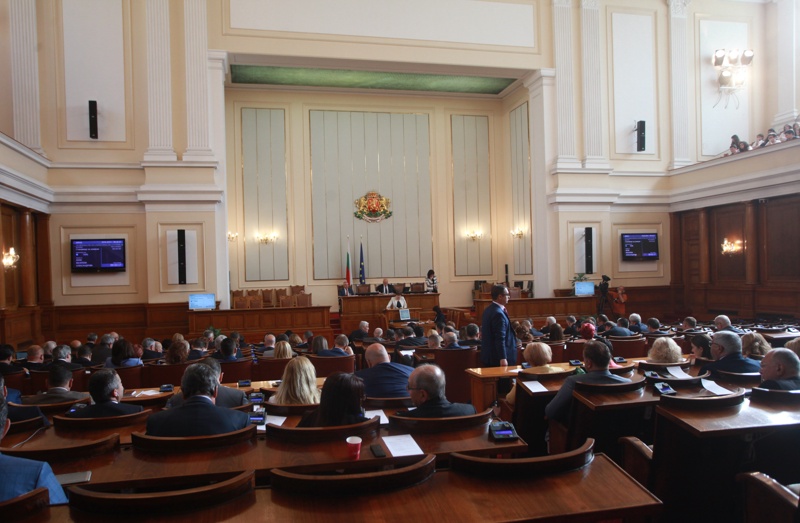
MPs finally launched the procedure for choosing a new chief of the Anticorruption Commission. The regulations governing the process were passed without debate.
The Anticorruption Commission is without a chief since its former head Plamen Georgiev finally resigned after a several-month-long real estate scandal. Checks into Sofia municipality records showed that Georgiev had done illegal construction on the terrace on top of his apartment building. The terrace had only one access – from Georgiev’s apartment, although it technically belonged to all apartment owners in the building. The municipality ordered the illegal constructions to be taken down. Georgiev appealed but later dropped the appeal and began taking them down himself. PM Boyko Borissov claimed credit for the sudden change of heart. According to him, Borissov himself had ordered Georgiev to comply and threatened that if he did not, Borissov would fire him from the diplomatic post he gifted him after Georgiev’ resigned from the Anticorruption Commission.
The parliament delayed launching a procedure for appointing a new head more than a month over what is allowed by law. Parliament had until September 30 to begin the process. The reasons for the delay are unclear. Before the procedure was announced some speculated that the current Prosecutor General Sotir Tsatsarov might be eying the post and that Parliament is stalling in order to make it possible Tsatsarov to become the new head of the Anticorruption Commission after his tenure is over. This seems unlikely now, as Parliament has a month to close the procedure.
Court allows unvaccinated child to attend kindergarten

The Administrative Court of Sliven has ruled that banning an unvaccinated child from attending kindergarten is a form of discrimination. The case involves one on nine children of Evgeniy Yanakiev, a priest and vocal antivaxxer. He is an active supporter of pushing reform to make obligatory vaccinations optional. According to his own account, his youngest two children are not vaccinated.
The kindergarten, which one of the two unvaccinated children attended, expelled him for not having the compulsory vaccinations for his age. His father filed a claim to the local office of the Commission for Protection against Discrimination, but the commission ruled in favor of the kindergarten. Then Yanakiev took the case to the court, which ruled it “fails to see the logic in the commission’s reasoning that unvaccinated children pose a risk to the vaccinated ones.”
The court ruling further equivalates the children, who cannot receive vaccinations for medical reasons with those who have not been vaccinated due their parents’ beliefs. The judge argues that if banning the latter from kindergarten is legitimate, then so should all children without vaccinations not be allowed to attend, regardless of the reason.
The court’s ruling sets a dangerous precedent.
According to medical lawyer Maria Sharkova, the ruling contradicts a number of international resolutions.
“I hope reason prevails in this situation because the public health is put to risk. There is no question about it”, Sharkova said.
She also cited a relevant ruling by the Supreme Administrative Court that compulsory vaccinations do not violate in any way other rights, rendering refusal very difficult – or indeed impossible - to justify in court.
More and more parents refuse to vaccinate their children in Bulgaria. Bulgarian authorities declared a measles outbreak in February of this year. 1150 cases of the disease have been registered since then.
Ключови думи
За честна и независима журналистика
Ще се радваме, ако ни подкрепите, за да може и занапред да разчитате на независима, професионална и честна информационно - аналитична медия.
 0 коментара
0 коментара
Екипът на Mediapool Ви уведомява, че администраторите на форума ще премахват всички мнения, съдържащи нецензурни квалификации, обиди на расова, етническа или верска основа.
Редакцията не носи отговорност за мненията, качени в Mediapool.bg от потребителите.
Коментирането под статии изисква потребителят да спазва правилата за участие във форумите на Mediapool.bg
Прочетете нашите правила за участие във форумите.
За да коментирате, трябва да влезете в профила си. Ако нямате профил, можете да се регистрирате.

